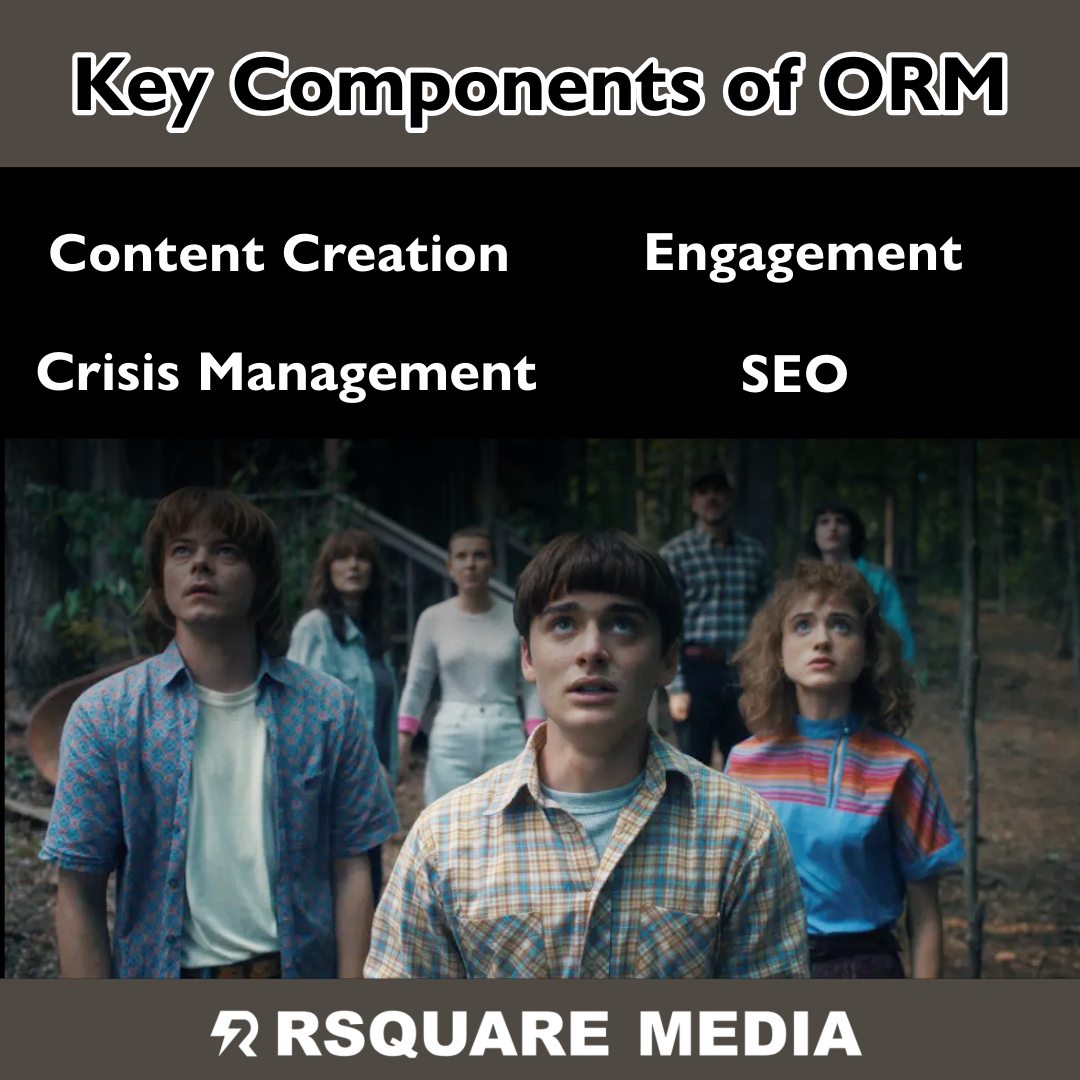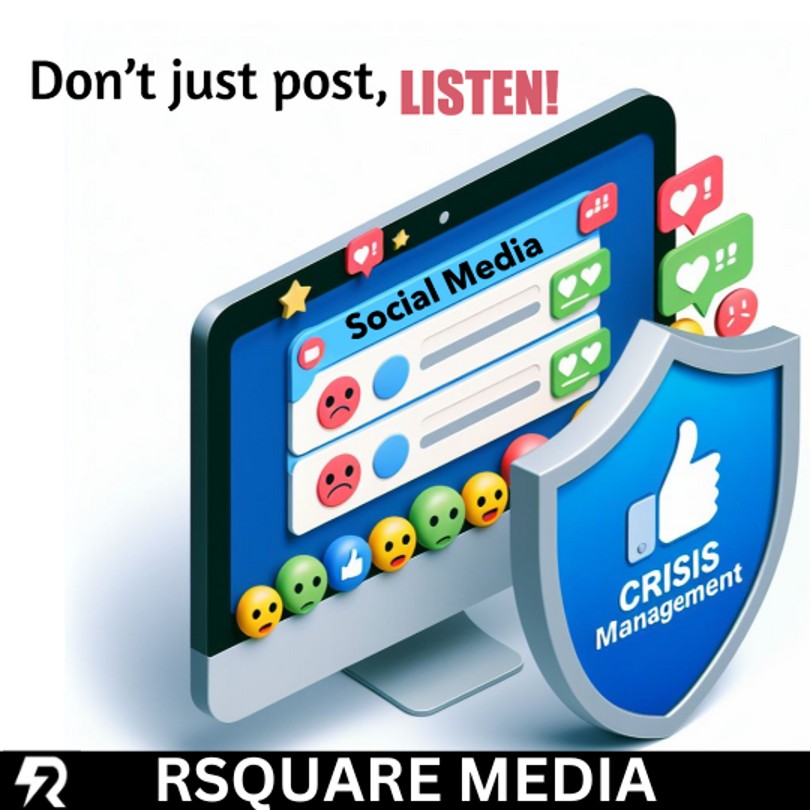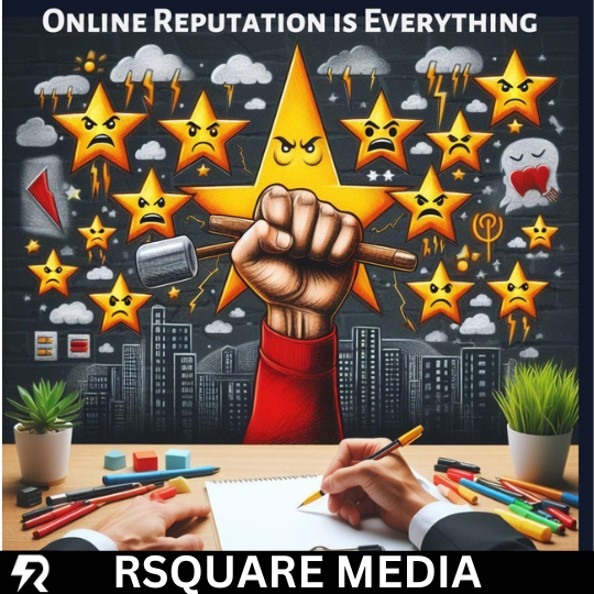In today’s digital age, maintaining a positive online reputation is crucial for any business striving for success. With the advent of social media, review platforms, and instant communication channels, information about a brand can spread rapidly, significantly influencing public perception. This makes online reputation management (ORM) in digital marketing not just an option but a necessity.

What is Online Reputation Management (ORM)?
Online reputation management (ORM) involves monitoring, identifying, and influencing digital content about your brand. It’s about proactively shaping the narrative around your business and ensuring that potential customers encounter positive information when they search for your brand online. Effective ORM can lead to increased customer trust, improved brand image, and ultimately, higher revenue.
To learn more about Online Reputation Management, click here.
Schedule your free discovery call here.
Fill out our intake form to help us understand your business goals and online visibility needs.
The Role of Digital Marketing in ORM

Digital marketing and ORM go hand in hand. A well-executed digital marketing strategy promotes your brand while managing its reputation in the digital sphere. This includes social media management, search engine optimization (SEO), content marketing, and handling online reviews. Each aspect plays a critical role in shaping the online perception of your brand.
Monitoring Your Online Presence
One of the primary components of ORM is monitoring what is being said about your brand across various digital platforms. This involves using tools to track mentions, reviews, and feedback on social media, blogs, forums, and other online channels. By staying informed about public sentiment, you can address negative feedback promptly and highlight positive experiences shared by your customers.
Responding to Customer Reviews and Feedback
Another crucial aspect is responding to customer reviews and feedback. Whether the feedback is positive or negative, timely and thoughtful responses demonstrate that your brand values customer opinions and is committed to providing excellent service. Handling negative feedback gracefully and resolving issues can turn dissatisfied customers into loyal advocates for your brand.
Leveraging Content Creation and SEO

Content creation and SEO are integral to effective ORM. By producing high-quality, relevant content that resonates with your target audience, you can dominate search engine results pages (SERPs) with positive information about your brand. This not only helps to suppress negative content but also enhances your brand’s credibility and authority in your industry.
To learn more about SEO, click here.
You can click here for your free consultation.
Fill out our intake form to help us understand your business goals and SEO needs.
Practical Implementation of ORM Strategies
With a clear understanding of why ORM is vital for your business, it’s time to delve into the practical aspects of implementing these strategies. Effective ORM starts with thorough monitoring of your digital presence. By staying informed about what’s being said about your brand, you can proactively address issues and leverage opportunities to enhance your image.
In the following sections, we’ll explore key strategies for monitoring your online presence, responding to feedback, and leveraging content creation and SEO. Each of these components plays a crucial role in shaping how your brand is perceived online and ensuring that you maintain a positive and impactful presence in the digital marketplace.
I. Monitoring Your Online Presence
Monitoring your online presence is the cornerstone of effective online reputation management. In the digital age, information about your brand can spread rapidly across various platforms, making it essential to stay informed about public sentiment. Here are some key strategies for monitoring your online presence:
1. Utilizing Monitoring Tools:
Various tools are available to help track mentions of your brand across the internet. Tools like Google Alerts, Mention, and Hootsuite can notify you whenever your brand is mentioned on social media, blogs, forums, or news sites. These tools provide real-time updates, enabling you to respond quickly to any potential issues.
2. Social Media Monitoring:

Social media platforms are where most conversations about brands occur. Regularly check your brand’s mentions, comments, and direct messages on platforms like Facebook, Twitter, Instagram, and LinkedIn. Engaging with your audience on social media can help you build a positive reputation and address concerns promptly.
3. Review Site Monitoring:
Review sites like Yelp, Google Reviews, and Trustpilot significantly influence public perception. Monitor these sites regularly to see what customers are saying about your business. Positive reviews can be highlighted and shared, while negative reviews should be addressed thoughtfully and professionally. Additionally, maintaining a well-designed website is crucial, as it provides a platform to showcase positive reviews and engage with customers directly.
To learn more about website designing, click here.
You can click here for your free consultation.
Fill out our intake form to help us understand your business goals and web design needs.
4. Analyzing Sentiment:
Sentiment analysis tools can help you understand the general tone of the conversations about your brand. These tools analyze text to determine whether the sentiment is positive, negative, or neutral. This insight allows you to gauge public perception and adjust your strategies accordingly.
5. Competitor Analysis:
Monitoring your competitors can also provide valuable insights. By understanding how your competitors are perceived, you can identify areas where your brand can improve and capitalize on your competitors’ weaknesses.
By staying vigilant and utilizing these monitoring strategies, you can maintain a comprehensive understanding of your brand’s online presence and take proactive steps to manage your reputation effectively.
II. Responding to Reviews and Feedback

Responding to reviews and feedback is a crucial aspect of online reputation management. How you handle customer feedback, whether positive or negative, can significantly impact your brand’s reputation. Here’s how to manage reviews and feedback effectively:
1. Timely Responses:
Responding to reviews promptly shows that you value customer feedback and are committed to providing excellent service. Aim to respond within 24-48 hours to demonstrate your attentiveness and dedication to customer satisfaction.
2. Positive Feedback:
When responding to positive reviews, express gratitude and appreciation. Acknowledge the specific points mentioned by the customer to show that you have read and valued their feedback. This encourages other customers to leave positive reviews and reinforces a positive brand image.
3. Negative Feedback:

Negative feedback requires a careful and thoughtful approach. First, apologize for the customer’s experience and acknowledge their concerns. Offer a solution or ask for more information to resolve the issue. This not only shows that you care but also provides an opportunity to turn a dissatisfied customer into a loyal one.
4. Professionalism and Tone:
Maintain a professional and respectful tone in all your responses. Avoid becoming defensive or argumentative, as this can escalate the situation and damage your reputation further. A calm and constructive approach helps to de-escalate potential conflicts and demonstrates your commitment to customer satisfaction. Additionally, incorporating storytelling into your responses can be effective in keeping clients calm and engaged, as it personalizes the interaction and shows empathy towards their concerns.
5. Public vs. Private Responses:
For complex issues, it may be best to move the conversation to a private channel. This allows you to address the customer’s concerns in detail without airing the issue publicly. However, always acknowledge the feedback publicly first to show transparency and willingness to resolve the matter.
6. Learning from Feedback:
Use the feedback to identify patterns and areas for improvement in your products, services, or customer service. Regularly reviewing feedback can provide insights into common issues and help you make necessary adjustments to enhance overall customer experience.
By responding to reviews and feedback thoughtfully and professionally, you can build trust with your customers and enhance your brand’s reputation.
III. Leveraging Content Creation and SEO
Content creation and search engine optimization (SEO) are integral to managing your online reputation. By producing high-quality, relevant content and optimizing it for search engines, you can shape the narrative around your brand and ensure positive information dominates search results. Here’s how to leverage content creation and SEO for reputation management:
1. Creating Valuable Content:

Develop content that addresses the needs and interests of your target audience. Blog posts, articles, videos, and infographics can provide valuable information, answer common questions, and showcase your expertise. High-quality content positions your brand as an authority in your industry.
2. Optimizing Content for SEO:
Implement SEO best practices to ensure your content ranks well on search engines. This includes using relevant keywords (like “online reputation management in digital marketing”), optimizing meta descriptions, using proper headers, and including internal and external links. Higher search engine rankings increase the visibility of positive content about your brand.
3. Managing Negative Content:
Negative content can sometimes appear in search results, impacting your reputation. Create and promote positive content to push negative information down in search results. This can include publishing customer success stories, positive testimonials, and case studies.
4. Engaging with Your Audience:
Encourage audience engagement by creating interactive content such as polls, quizzes, and discussion forums. Engaging content can generate positive interactions and increase the chances of your content being shared, thus enhancing your online reputation.
5. Building Backlinks:
Obtain backlinks from reputable websites to boost your content’s credibility and search engine ranking. Guest blogging, partnerships, and influencer collaborations can help you acquire quality backlinks that improve your online visibility.
6. Monitoring Content Performance:
Regularly analyze the performance of your content using tools like Google Analytics. Understanding which content resonates with your audience allows you to refine your strategy and focus on producing content that positively impacts your reputation.
7. Consistent Content Updates:
Keep your content fresh and up-to-date by regularly updating existing posts and publishing new content. This not only helps with SEO but also shows that your brand is active and engaged in providing current information to your audience.
By strategically creating and optimizing content, you can effectively manage your online reputation, ensuring that positive information about your brand is easily accessible and highly visible.
Conclusion
In the ever-evolving landscape of digital marketing, online reputation management is no longer just a supplementary strategy but a critical component of a successful brand presence. By focusing on monitoring your online presence, responding to reviews and feedback, and leveraging content creation and SEO, you can effectively shape and maintain a positive image for your brand.
Monitoring Your Online Presence
Monitoring your online presence is the first crucial step. Utilizing various tools and platforms allows you to stay informed about what is being said about your brand. Real-time updates from tools like Google Alerts and Mention enable you to respond quickly to any issues that arise. Social media monitoring ensures you are engaging with your audience where most conversations happen, while review site monitoring on platforms like Yelp and Google Reviews helps you keep track of customer sentiments. Additionally, competitor analysis provides insights that can help you refine your strategies and stay ahead in the market.
Responding to Reviews and Feedback
Once you have a clear picture of your online presence, responding to reviews and feedback becomes paramount. Timely and thoughtful responses to both positive and negative feedback demonstrate your commitment to customer satisfaction. By thanking customers for positive reviews and addressing negative ones with solutions, you can turn potential issues into opportunities for improvement. Maintaining a professional and respectful tone, even when faced with criticism, shows your brand’s dedication to excellence. Learning from feedback and using it to enhance your services further solidifies your brand’s reputation.
Leveraging Content Creation and SEO
Leveraging content creation and SEO is the next vital step in managing your online reputation. High-quality, relevant content that resonates with your audience positions your brand as an authority in your industry. By optimizing this content for search engines, you ensure that positive information about your brand ranks higher in search results, effectively pushing down any negative content. Engaging with your audience through interactive content and building backlinks from reputable sites further enhances your online visibility. Regularly updating your content keeps it fresh and relevant, demonstrating that your brand is active and engaged.
The Importance of a Proactive Approach
Mastering online reputation management in digital marketing requires a comprehensive and proactive approach. By diligently monitoring your online presence, thoughtfully responding to customer feedback, and strategically creating and optimizing content, you can shape a positive narrative around your brand. This not only builds trust and credibility with your audience but also drives long-term success for your business. In today’s digital world, where public perception can make or break a brand, investing in effective online reputation management is essential. By implementing these strategies, you can ensure that your brand stands out positively in the crowded digital marketplace, attracting more customers and fostering lasting loyalty.
If you’re interested in enhancing your online reputation, schedule a free consultation with Rsquare Media. Fill out our intake form to help us understand your business goals and online visibility needs.

